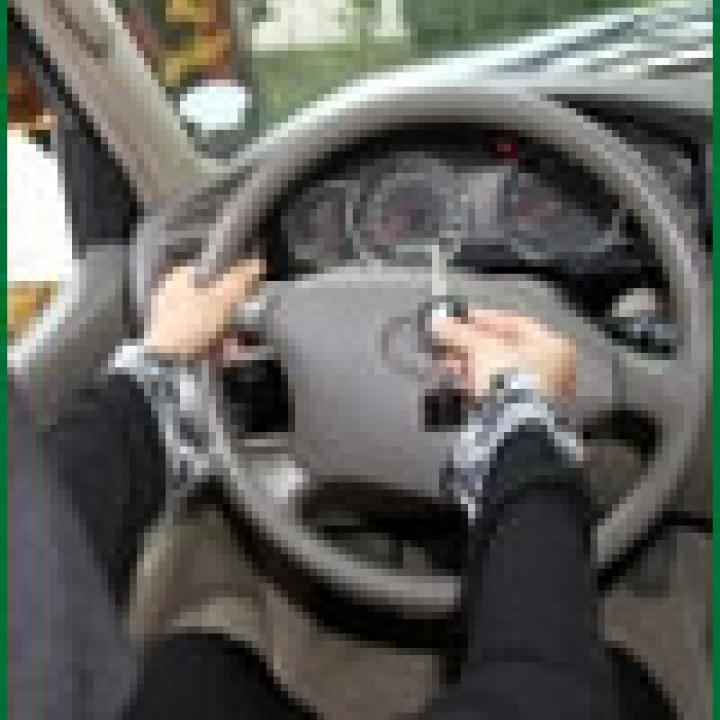
- Policy Analysis
- Articles & Op-Eds
Saudi Female Victory in Municipal Elections: Overrated or Underestimated?

Around twenty Saudi women won municipal elections last month, and the news of Saudi women making history through political participation went viral. Talk shows discussed Saudi women’s victory and social media networkers congratulated Saudi women for their remarkable accomplishment.
While some commentators overrated women's gain on the political level, others questioned the role of municipal councils on the practical level in addition to women's participation in the political sphere. What most media outlets, especially Western ones, seemed to miss was on what Saudi women are actually betting through their participation in municipal elections.
Saudi women realize that they are far from practicing equal political rights, especially since female candidates are not allowed to speak with male candidates or even present their electoral campaign in front of male audiences. This is not to mention the general restrictions placed on women’s freedom of movement. Instead, Saudi females are betting that the juxtaposition between the acclaimed gains of political representation and their actual situation will bear fruit. In other words, they are hoping that these elections will push issues such as guardianship and eligibility for full citizenship and equal rights into the international spotlight.
Saudi women’s fight to win their political rights to participate in municipal elections began shortly before the first round of the 2004 municipal elections. A group of female activists, led by Fawzia Al Hani and Dr. Hatoon al-Fassi, started the Baladi campaign, an initiative that attempted to engage Saudi females in municipal elections. When asked about the importance of women's participation in the municipal elections, founding Baladi member Amal Zahid explained that participation is a “first step” to “real social change.” She asserted that by practicing the right to vote and through the ability to nominate other women as candidates, Saudi women will contribute to raising awareness of the electoral system. According to Zahid, this system serves as an “accumulative process” within any society that is in the process of becoming a civil one. Zahid also mentioned that women in Switzerland only gained the right to participate in elections during the seventies, demonstrating that women all over the world have faced a long struggle for full involvement in politics.
It is important to note that the first Saudi municipal elections took place in 2005, while women began participating in 2011. At this point, the late Saudi King Abdullah bin Abdulaziz decided to include Saudi women in both Shura and municipal councils with full memberships.
The importance of the 2015 round of municipal elections is that it is the first in which women were allowed to both vote and run for office. More than 900 women registered as candidates, and about 130,000 women voted, compared to 1.36 million men.
According to election coordinators’ figures, the municipal elections experienced a lack of participation by both men and women. Moreover, many men who had participated in previous rounds chose not to participate in the 2015 round of elections. Those who chose not to participate justified their decision by confirming that the previous municipal committees neither met their expectations nor implemented their demands. Some discuss the uselessness of the municipal councils due to their limited powers, which has led to an inability to implement the municipal councils' resolutions. Given these reasons and the lack of participation, some commentators have characterized the whole experience of municipal elections, including female participation, as a failure.
Whereas a big percentage of Saudi males found it either unnecessary or unsatisfactory to participate in municipal elections, Saudi females found it necessary despite their lower numbers compared to male participation. Saudi women have used participation in the municipal elections as a way to draw the world's attention to the condition of women in Saudi Arabia, hoping this might pressure the government to grant women more civil rights at all levels of society.
Saudi women's involvement in the professional world is currently not very welcome for various reasons, including because Saudi men are uncomfortable around women in public places. In a society where women's presence in public is almost frowned upon, not much is expected from them in regards to social and economic development – the mission of municipal councils. Yet the official decision to include women in municipal elections and their willingness to exercise that right will force Saudi society to accept new norms for women. There are recent precedents for this change; Saudi society was not accepting of female education and participation in Shura councils until King Faisal’s official decision to make education mandatory for both boys and girls and King Abdullah’s 2011 decision to include women in Shura councils.
While it is important not to overstate women’s victory in this municipal elections round, it is just as important not to underestimate what Saudi women have accomplished in their fight to gain their rights as equal citizens in this election. The victory of twenty seats indicates that even if the municipal councils have limited powers, women will not spare any effort to be fully represented, even in a crippled municipal council.
A caricature of the municipal councils has been going viral. It depicts the members of the councils as static vases on tables. Half of these vases are blue, representing males, and the other half in red to represent females. This caricature neatly encapsulates the meaning of female participation in the municipal elections. That is to say, even if it only means to be sitting there, unable to do much, we women want to show that we want to be in the room to represent the other half of Saudi society.
Heba Albeity is a Saudi journalist, translator, and blogger. This article was originally published on the Fikra Forum website.
